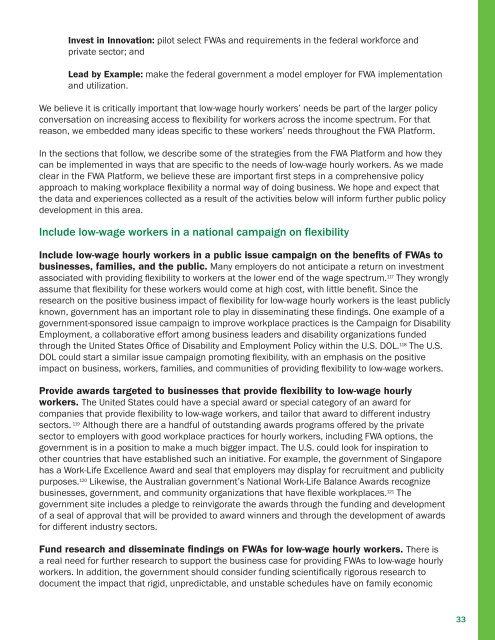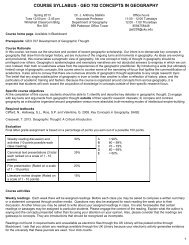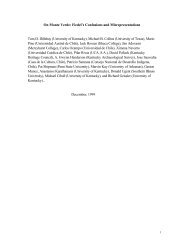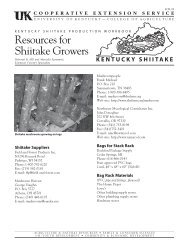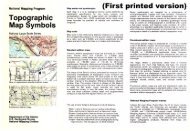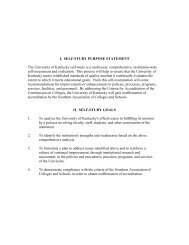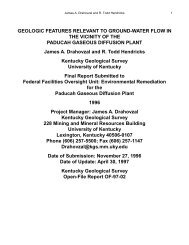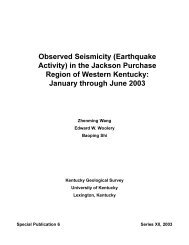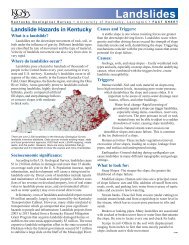Flexible Workplace Solutions for Low-Wage Hourly Workers
Flexible Workplace Solutions for Low-Wage Hourly Workers
Flexible Workplace Solutions for Low-Wage Hourly Workers
You also want an ePaper? Increase the reach of your titles
YUMPU automatically turns print PDFs into web optimized ePapers that Google loves.
Invest in Innovation: pilot select FWAs and requirements in the federal work<strong>for</strong>ce and<br />
private sector; and<br />
Lead by Example: make the federal government a model employer <strong>for</strong> FWA implementation<br />
and utilization.<br />
We believe it is critically important that low-wage hourly workers’ needs be part of the larger policy<br />
conversation on increasing access to fl exibility <strong>for</strong> workers across the income spectrum. For that<br />
reason, we embedded many ideas specifi c to these workers’ needs throughout the FWA Plat<strong>for</strong>m.<br />
In the sections that follow, we describe some of the strategies from the FWA Plat<strong>for</strong>m and how they<br />
can be implemented in ways that are specifi c to the needs of low-wage hourly workers. As we made<br />
clear in the FWA Plat<strong>for</strong>m, we believe these are important fi rst steps in a comprehensive policy<br />
approach to making workplace fl exibility a normal way of doing business. We hope and expect that<br />
the data and experiences collected as a result of the activities below will in<strong>for</strong>m further public policy<br />
development in this area.<br />
Include low-wage workers in a national campaign on flexibility<br />
Include low-wage hourly workers in a public issue campaign on the benefits of FWAs to<br />
businesses, families, and the public. Many employers do not anticipate a return on investment<br />
associated with providing fl exibility to workers at the lower end of the wage spectrum. 117 They wrongly<br />
assume that fl exibility <strong>for</strong> these workers would come at high cost, with little benefi t. Since the<br />
research on the positive business impact of fl exibility <strong>for</strong> low-wage hourly workers is the least publicly<br />
known, government has an important role to play in disseminating these fi ndings. One example of a<br />
government-sponsored issue campaign to improve workplace practices is the Campaign <strong>for</strong> Disability<br />
Employment, a collaborative ef<strong>for</strong>t among business leaders and disability organizations funded<br />
through the United States Offi ce of Disability and Employment Policy within the U.S. DOL. 118 The U.S.<br />
DOL could start a similar issue campaign promoting fl exibility, with an emphasis on the positive<br />
impact on business, workers, families, and communities of providing fl exibility to low-wage workers.<br />
Provide awards targeted to businesses that provide flexibility to low-wage hourly<br />
workers. The United States could have a special award or special category of an award <strong>for</strong><br />
companies that provide fl exibility to low-wage workers, and tailor that award to different industry<br />
sectors. 119 Although there are a handful of outstanding awards programs offered by the private<br />
sector to employers with good workplace practices <strong>for</strong> hourly workers, including FWA options, the<br />
government is in a position to make a much bigger impact. The U.S. could look <strong>for</strong> inspiration to<br />
other countries that have established such an initiative. For example, the government of Singapore<br />
has a Work-Life Excellence Award and seal that employers may display <strong>for</strong> recruitment and publicity<br />
purposes. 120 Likewise, the Australian government’s National Work-Life Balance Awards recognize<br />
businesses, government, and community organizations that have fl exible workplaces. 121 The<br />
government site includes a pledge to reinvigorate the awards through the funding and development<br />
of a seal of approval that will be provided to award winners and through the development of awards<br />
<strong>for</strong> different industry sectors.<br />
Fund research and disseminate findings on FWAs <strong>for</strong> low-wage hourly workers. There is<br />
a real need <strong>for</strong> further research to support the business case <strong>for</strong> providing FWAs to low-wage hourly<br />
workers. In addition, the government should consider funding scientifi cally rigorous research to<br />
document the impact that rigid, unpredictable, and unstable schedules have on family economic<br />
33


